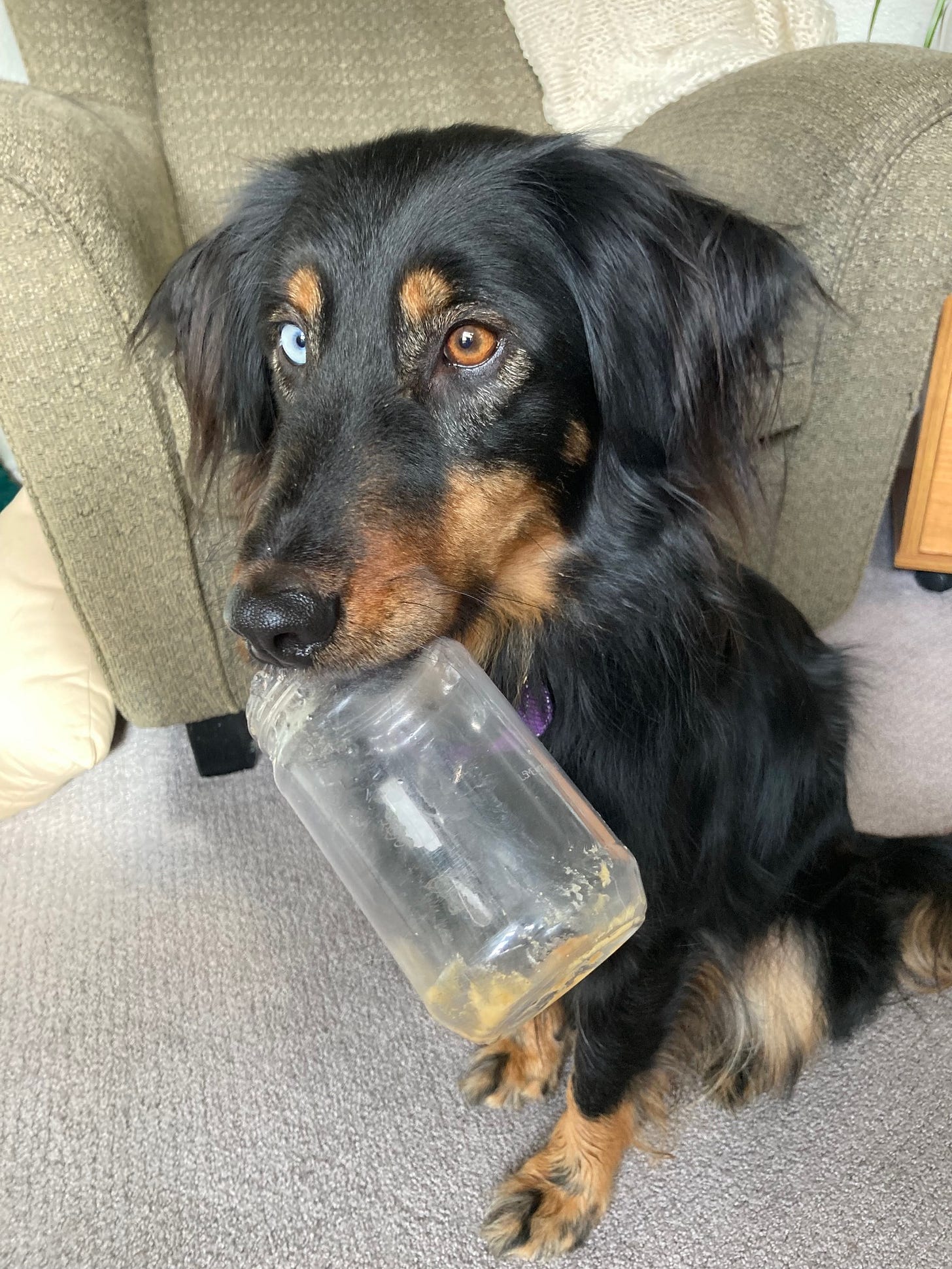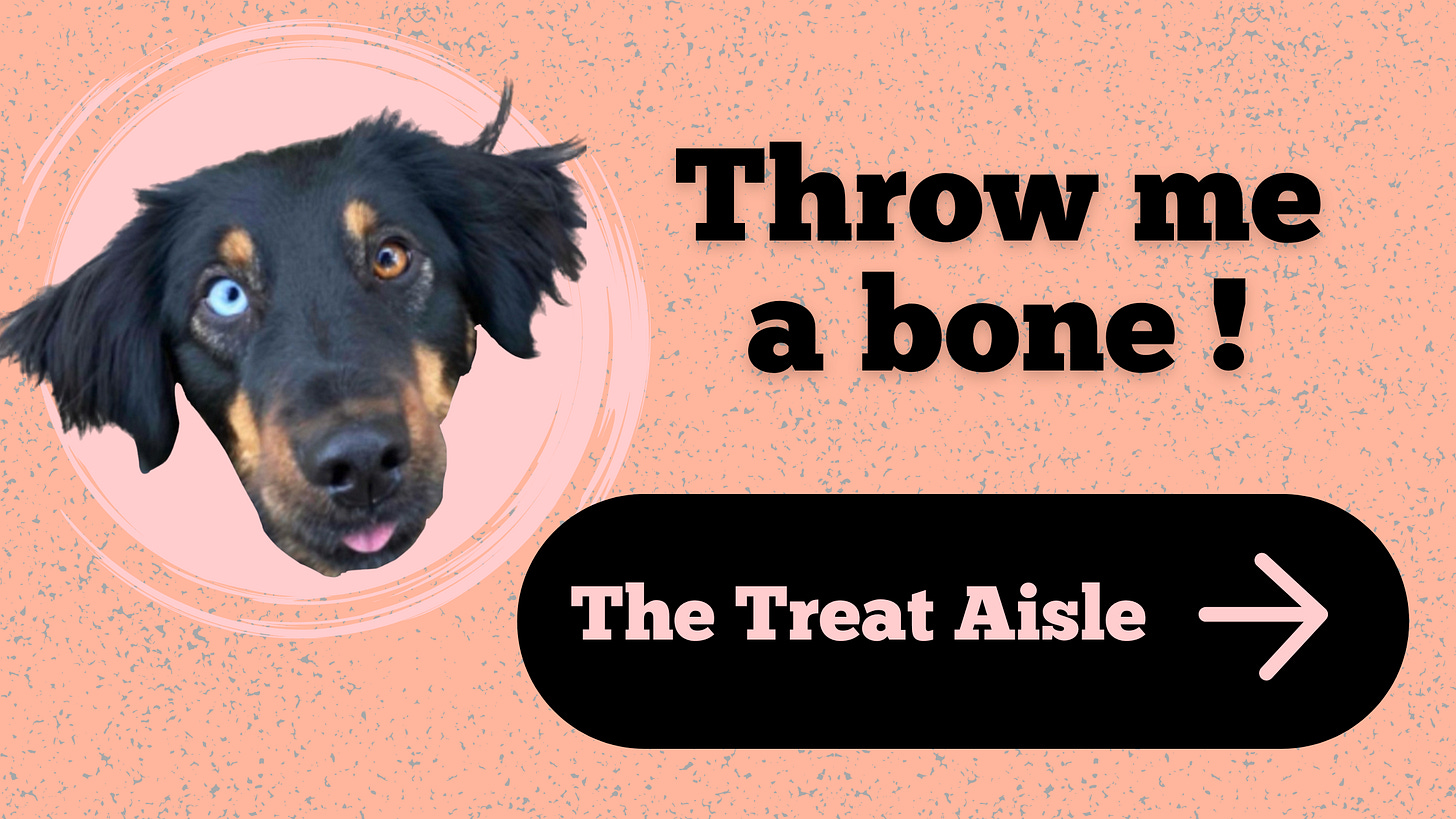Whether you’re naming your dog, your emotions, or your trauma, naming something is more powerful than you think.
This is Pants. If you’ve been with Dog Lover’s Guide for a while, you probably know her as my party mix Aussie-mutt who serves up an extra helping of personality. And you’ve likely wondered why I named my dog after an item of clothing.
Pants came to us as Bailey, a name she had all of one month as she was transported from the Texas streets to the rural Oregon humane society we adopted her from. Because Bailey was my wife’s first dog, we agreed she should be the one to rechristen our new pup. She enthusiastically chose the name Pants. Why? Because we once had a neighbor with a dog named Pants, and it was super fun to yell, “Pants!” in the street whenever we saw her.
Pants’ name may be silly and nonsensical, but it’s also an important part of who she is. It shapes what people expect of her: a dog named Pants is much easier to approach than a dog named Killer. Her name’s power is in making her an approachable and playful creature in other peoples’ eyes.
Many cultures and traditions have a myth or belief that knowing someone’s true name gives you power over it. You’ve probably read Rumpelstiltskin, in which the miller’s daughter escapes a terrible bargain by correctly naming the magical imp. Adam named the animals and was given dominion over them. In many English and Celtic stories, fairies kept their names secret from humans so as not to give humans power over them. Egyptian lore similarly held that knowing a god’s name gave the knower power over it.
We tell stories to transmit truth. It’s no mistake that so many cultural traditions have stories about the power inherent in names. Think about a time you’ve been called something wonderful: beloved, soul mate, best friend. How did that make you feel? How did that change you – your mood, your perception of yourself, your relationship with the person who named you? Being named as a loved one is powerful.
Therapy is also an act of naming. When you tell your therapist about the nightmares, the intrusive thoughts, the memories, what you did or didn’t do and how much shame you feel – you name it. That act of naming, in a safe and caring space, takes power back from shame and silence. You take a step towards healing. Naming rewires your brain, changing your relationship to the trauma, grief, or shame you spoke out loud because once you put words to it and give that story to someone else, you’ve taken back control.
This doesn’t just happen in therapy. You can do it in AA, in confession, or with a safe friend or family member. You can write in a journal or morning pages, name it in prayer, or talk with your medical provider. However you do it, naming – done in a safe and nonjudgmental environment – is a powerful thing, and moves you towards healing, recovery, and growth.
If you’d like to find a therapist, check out Psychology Today’s Find a Therapist tool.
I’d love to hear your stories of how you named your pups – leave a note in the comments!









Love this! The act of "naming" something is so powerful, and I love the way you've shown us this in a fun playful way. Really enjoy reading your blog! Always learn something without feeling like I'm learning something!
We named our dog "Winter" because our kids had a friend who named their dog, "Summer."